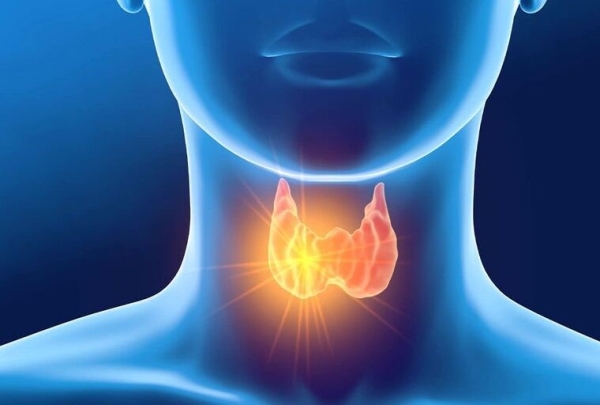Thyroid Surgery: Diagnosis and Treatment Options

Thyroid Surgery: When It Is Necessary and What to Expect
Thyroid surgery is indicated to treat both benign and malignant conditions affecting the thyroid gland.
Benign Conditions:
🔹 Multinodular goiter: An abnormal enlargement of the thyroid gland that may cause discomfort or cosmetic concerns.
🔹 Thyroid nodules: Especially if they cause compressive symptoms (difficulty swallowing or breathing) or affect neck appearance.
🔹 Medication-resistant hyperthyroidism: When medical treatments fail to control excessive thyroid hormone production.
Malignant Conditions
Thyroid surgery is also necessary for certain types of thyroid cancer, including papillary, follicular, medullary, and anaplastic carcinoma.
In these cases, surgery is essential to remove the affected gland and prevent cancer from spreading.
What Is a Thyroidectomy?
A thyroidectomy is a surgical procedure to remove part or all of the thyroid gland. Depending on the patient’s condition, the surgeon may opt for:
- Total thyroidectomy: Complete removal of the thyroid gland, usually required for thyroid cancer or large goiters.
- Lobectomy or partial thyroidectomy: Removal of only part of the gland, recommended for localized nodules or less extensive conditions.
How Is the Surgery Performed?
The procedure is performed under general anesthesia through an incision in the front of the neck. In most cases, the scar is small and well-tolerated.
Possible Risks and Considerations
Although thyroidectomy is a safe procedure, there are some risks, including:
- Injury to the parathyroid glands, which regulate calcium levels.
- Damage to the recurrent laryngeal nerve, potentially affecting the voice temporarily or permanently.
- Bleeding or infections, although these are uncommon.
Your surgeon will discuss these risks with you and take all necessary precautions to minimize them.
Recovery and Postoperative Care
Most patients can resume their usual activities within a few weeks. It is normal to experience some neck discomfort during the first few days, but this can be easily managed with pain relievers.
If a total thyroidectomy has been performed, patients will need lifelong thyroid hormone replacement therapy to compensate for the gland’s lost function. The medication is adjusted through regular medical follow-ups to ensure proper balance.
Regular endocrinologist visits are essential to monitor hormone levels, adjust medication, and detect any potential complications. In cases of thyroid cancer, additional tests may be required to rule out recurrence.
Why Trust Thyroid Surgery?
Thyroid surgery is a highly effective and safe procedure when performed by experienced surgeons. Whether treating a goiter, hyperthyroidism, or thyroid cancer, this surgery significantly improves quality of life, reduces symptoms, and prevents serious complications.
Your Health, Our Priority
If you have been diagnosed with a thyroid condition that requires surgery, our team is here to provide you with a personalized and safe treatment plan. From the initial consultation to postoperative follow-up, we are committed to your well-being.
📩 Contact us for more information or to schedule a consultation. We are here to help you make the best decision for your health.
Patients Reviews
⭐⭐⭐⭐⭐ Dr. Alevizos is incredible. He explains everything patiently and always with a great attitude. From the very first minute, he made me feel calm and in good hands. You can tell he genuinely cares about how you’re doing and not just about solving the problem quickly. If you’re looking for a surgeon who truly cares about you and is amazing at what he does, he’s the one.
Carlos B
⭐⭐⭐⭐⭐ A great professional from the very beginning. During the consultations, he thoroughly understood my case, always approachable and reassuring. The procedure went as well as expected, and with the treatment I’m following, I’ve improved significantly.
I’m truly grateful to have been in good hands.
Manu P
⭐⭐⭐⭐⭐ For me, it has been an enormous stroke of luck to put myself in his hands for a pathology that is so difficult to treat and complicated to resolve. My most sincere thanks and all my love to Dr. Alevizos
NGQ
⭐⭐⭐⭐⭐ I have been operated on twice by Dr. Alevizos, and without a doubt, he is a great professional who is caring and deeply involved with his patients. I felt absolute peace of mind in his hands. Thank you for everything, Dr. Leonidas!
Francisco J
⭐⭐⭐⭐⭐ Without a doubt, Dr. Leonidas is a spectacular surgeon, in addition to providing gentle, kind and reliable treatment. I was lucky enough to be operated on by him for a pilionidal cyst after having previously been operated on twice without obtaining good results... until I put myself in the hands of Dr. Leonidas, who thanks to his intervention after almost two years, I am in perfect condition. been and I haven't had any problems again!
Alejandro R
⭐⭐⭐⭐⭐ His patience, kindness, and professionalism throughout the whole process—from diagnosis to surgery and discharge—gave me peace of mind and helped me cope in the best possible way.
Truly grateful
MTT
⭐⭐⭐⭐⭐I had stomach surgery by surgeon Leonidas Alevizos and noone can imagine the great quality of life he gave me. His history with me was always his absolute concern for my digestive problems and there was not a single consultation in which I did not feel understood or supported. His psychology with me was excellent, my post-operative period was very monitored by him and I could not have felt more cared for at the time when I felt most vulnerable.
MLS
⭐⭐⭐⭐⭐Grateful from the first moment for the humane treatment that the doctor gave me. He was attentive to any problem or doubt
Agustín H
Your Well-being, Our Expertise
